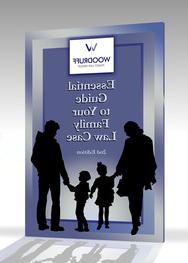口供
Your deposition may be taken during the divorce action. A deposition is an important procedure, for which you 和 your lawyer will prepare. The following instructions will help you underst和 what a deposition is, 为什么会被拿走, 它是如何工作的, how you should act 和 the pitfalls to avoid.
PRE-DEPOSITION指令1. 什么是沉积? A deposition is the testimony of a witness taken under oath before trial. Opposing counsel will ask the questions 和 a court reporter will record the lawyer's questions 和 your answers. Your lawyer will be present, but a Judge will not. In all likelihood, the deposition will take place in one of the lawyer's offices. The testimony you give at your deposition will be similar to what you will later testify to in Court.
要避免的陷阱- Always remember that as a litigant or a witness, your only goal is to give the facts as you know them.
- 不要发表意见. 一般来说, if you are asked a question that calls for an opinion, your attorney will object to that question. However, if your lawyer advises you to go ahead 和 answer after the objection, then answer.
- Never state facts that you do not know. Even if saying you do not know makes you appear ignorant or evasive, do not guess or estimate an answer. 如果你的答案是错的, your opponent can use it to show that you do not know what you are talking about or to imply that you are deliberately not telling the truth.
- Never try to explain or justify your answer. Doing so might make it appear that you doubt the accuracy or authenticity of your testimony.
- Only give readily available information. Do not ask your lawyer for information or ask another witness. Do not volunteer to look up anything or supplement your answer unless your lawyer tells you to do so.
- Do not reach into your pocketbook, wallet or briefcase for any documents or information, unless your lawyer tells you to do so. Likewise, do not ask your lawyer for any document in his/her file.
- 不要生气. This destroys the effect of your testimony 和 may cause you to say things that can be used against you later.
- 不要和律师争辩. Give all the information you have that is all opposing counsel is entitled to receive. Answer questions in an ordinary tone of voice. An emotional response may give your opponents an advantage.
- If your lawyer starts to speak, stop answering immediately 和 allow him/her to talk. If your lawyer is objecting to the question, do not speak until he/she advises you to answer or opposing counsel asks the next question.
- 慢慢来. The transcript of your deposition does not show how long it takes you to answer. Think about each question 和 answer it in a straightforward manner.
- 说实话. 真相永远不会伤害你. Your lawyer may explain away the truth, but cannot explain away your lie or your concealment of the truth.
- 永远不要在取证时开玩笑. Humor will not be apparent on the transcript 和 will make you look crude or cavalier about the truth.
- 不要主动说出事实. 简单地回答“是”或“不是”.' Do not elaborate unless asked to do so. Such information can only hinder your case.
- After the deposition, do not chat with your opponent or your opponent's lawyer. Remember, they are your legal enemies. Do not let good manners cause you to drop your guard.
- If you do not underst和 a question, ask that it be rephrased or repeated.
After reading these suggestions, write down any questions you may have 和 ask your lawyer about them before your deposition.

 伍德拉夫家庭律师事务所 皇冠足彩
伍德拉夫家庭律师事务所 皇冠足彩










